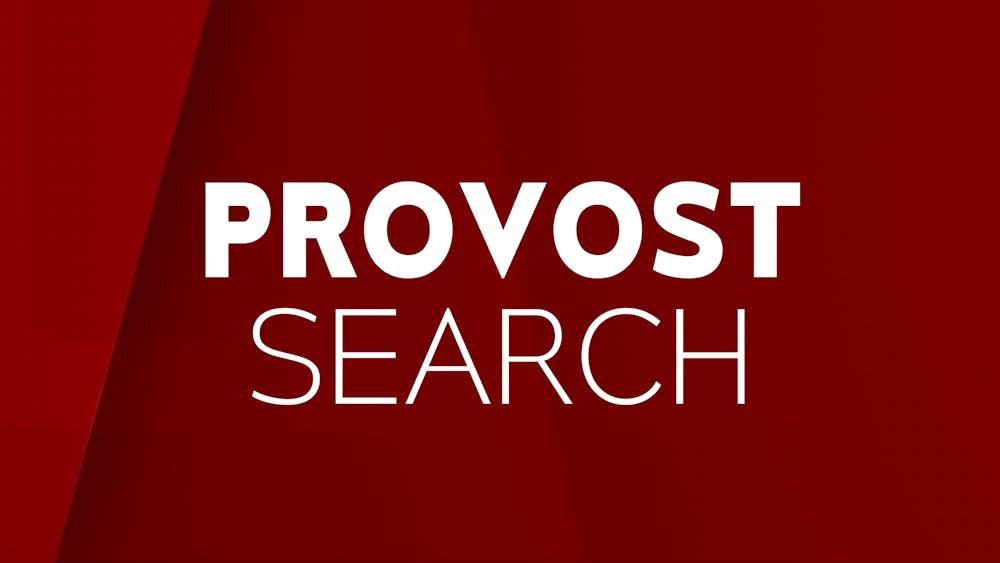Correction: A previous version of this article misstated Robert Aguirre’s work to address segregation in Virginia. Aguirre was referring to segregation in public schools near James Madison University, rather than within the university itself. Elon News Network regrets this error.
A previous version of this article mistranscribed a quote from Robert Aguirre. Aguirre said “major,” not “nature,” when addressing education gaps at Wayne State University. Elon News Network regrets this error.
Robert Aguirre, the third and final provost candidate, presented to Elon University students, faculty and staff Oct. 6. He focused on his work as the dean of the College of Arts and Letters at James Madison University, and how that fits in with Elon’s strategic plan.
Aguirre said both Elon’s engaged learning and his 25 years of experience within the arts and sciences has drawn him to this position.
He said two of the main things he has worked on has been JMU’s civic engagement program and community engagement. Aguirre said while having strong numbers of voter turnout is important, it is more important to him to have civic engagement as a part of the curriculum.
“I don't think it escapes any of us in this room that our country is becoming increasingly polarized, that there is troubling doubt about the fairness and the efficacy of our electoral system,” Aguirre said. “I think it's essential for any great university, including this one, to really tackle this problem in a deeply intentional way. And I think programs of civic engagement, which approach these questions in the spirit of candor and collegiality, are critical.”
As a part of this, Aguirre said at JMU they are launching programming focusing on topics such as free speech on campus, trust in our elections and broadly about the future of democracy.
Aguirre said in regards to community engagement, working to make the university a part of the larger town of Elon community is important. As JMU is the main university within the Shenandoah Valley where it is located, he said it is part of his responsibility to both send students out into the community and to bring community members in.

He said part of being an active part of the community also deals with coming to terms with the history of the university and addressing things like Virginia’s previously segregated schools. He said JMU has worked to unearth this history and then display the historical work of the remnants of a Black school that used to neighbor the university.
Aguirre also has previous experience of working on diversity education innovation initiatives at a predominantly white institution and said before he came to JMU and served as the associate dean of the College of Liberal Arts and Sciences at Wayne State University, he worked to close achievement gaps between students of color and white students, especially within the stem field. This led to the university investigating why there were these gaps and how to fix this issue.
“What we learned was sobering to be frank, not only were students not succeeding in these gateway courses, but when they did not succeed in these gateway courses, they did not complete the major that they had signed up for and even worse, were often dropping out of college altogether,” Aguirre said. “And that was an existential problem for the university and required a huge mobilization of faculty, staff, board leadership, labor to try to solve it. It's not flipping the switch. It was a multi-year problem.”


